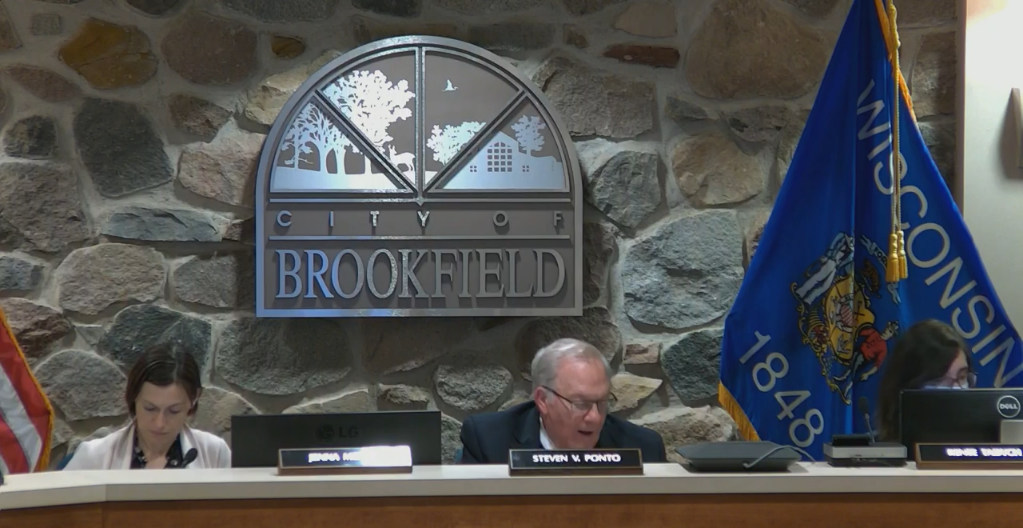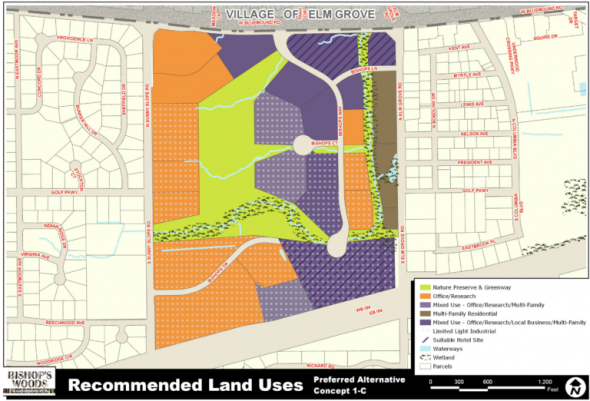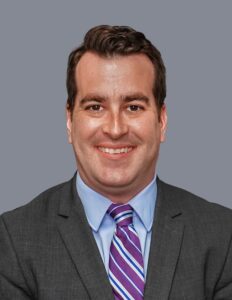Brookfield Alderman’s Blast at Affordable Housing Ignites Controversy
A call for censure after he says such people could make city 'become West Allis.'

The city of Brookfield common council meeting on Jan. 17th, 2023. Screenshot of the city of Brookfield common council video/Wisconsin Examiner.
Tension is building on the city of Brookfield’s common council over an affordable housing project. In late November, the Flats at Bishop Woods housing development earned final approvals from the council. The 203-unit project, the ambition of a California-based developer, would offer affordable rents in the wealthy suburb.
The housing project, a development of Lincoln Avenue Capital which also owns properties in Madison, would offer housing for $400 less than the average Brookfield resident currently pays. Funded by a state energy grant, the development would be built on a 3.707-acre lot in the Bishops Woods office park. The four-story project would have mixed-use dwelling spaces, and would include 312 parking spaces.
The project is an example of workforce housing — meaning it targets middle-income workers who earn 60 to 120% of the median area income, including professions such as police officers, firefighters, teachers, health care workers and retail clerks.
While questions remain about how the housing development will affect traffic, whether there will be a play area, and other design questions, the proposal passed the common council 8-6 in late November. Brookfield’s city attorney explained that council members could only oppose the project if it violated zoning laws or the city’s Planned Development District guidelines.
The Fair Housing Act and federal anti-discrimination laws outline several reasons the council could not lean on to block the project. “The Fair Housing Act prohibits you from making any discriminatory [decisions] regarding particular individuals, or particular financial capabilities, or anything about certain particular protected classes,” City Attorney Jenna Merten told the council at a meeting on Jan. 17. “So what you should be looking at is the things in your packet, and making sure it complies with the code, which city staff has advised, through their analysis, that it does.”
City Attorney Merten explained that if the council found that the project violates the city code, they could vote against it. Otherwise, they risked opening the city up to discrimination lawsuits in state or federal court. In federal court the city would be expected to pay attorney fees for the other side if it lost, as well as any settlement. Ald. Jerry Mellone listed a number of questions about fire department access, why there needed be one large building rather than more, smaller buildings, adding green space and ensuring safe traffic flow. Ald. Christopher Blackburn voted against the project, stating his vote was “more of a protest than it is something that is going to put the city in jeopardy as far as getting sued for not complying with its ordinances.”
Ald. Kris Seals, however, seemed determined to keep the downside of having low-income residents move into the community in the conversation. “The problem that I have is the future of Brookfield,” Seals said at the Jan. 17 meeting. He asked, “Is Bishop Woods going to become an apartment neighborhood? And then everyone around there is just going to have to deal with just a city of apartments? Apartment cities are for Brookfield Square and down Bluemound Road where the businesses are. That’s the purpose of that area. Bishops Woods is in the center of residential … and it’s going to become an apartment city if we let this keep going forward. Because this is two [buildings], when is three? When is four?”
Later in the meeting Seals was more candid. “What we are trying to do is step down to a West Allis or a Wauwatosa. No, we’re Brookfield. We don’t step down to allow the people who can’t afford to live in Brookfield to come in, because then we become West Allis, then we become Wauwatosa. This is not what Brookfield is. I’ve been here 60 years, this is not Brookfield.”
Seals made similar comments in other meetings. On Nov. 17, Seals said, “if you want to live in Brookfield, like all of us who live in Brookfield, you put your nose to the grindstone and live in Wauwatosa or West Allis and save that money until you can afford to live in Brookfield.”
Cities have been sued for opposing affordable housing in the past. A 2012 federal Justice Department press release highlighted the case of New Berlin, which blocked a 180-unit affordable housing project proposed for the city center. It was rejected after hundreds of residents objected to the project. Lawsuits accused the city of bending to racial stereotypes against African Americans. It also accused the city of changing its zoning and land use requirements to bar affordable housing in the future. The city was ultimately forced to agree to modify the changes it made to its zoning policies and to pay a minimum of $75,000 to establish a Housing Trust Fund. City officials were also required to work with developers on future affordable housing projects and to provide a $5,000 civil penalty fee to be paid to the United States. New Berlin is a community troubled by a history of white supremacist activity.
For decades, suburban communities around Milwaukee have dealt with the legacy of racial housing covenants and other forms of housing discrimination which created racially distinct neighborhoods. Both Wauwatosa and West Allis had recent episodes of racist activity and harassment, as did Waukesha County. Brookfield also has the highest median value of owner-occupied homes at $346,000, compared to $260,700 in Wauwatosa, and $155,700 in West Allis.
At different points in the Jan. 17 meeting, Seals’ comments earned applause and cheers from audience members. Of the 15 people who spoke during the public hearing, all but three spoke in opposition to the housing project. Another 50 people submitted comments for the hearing but didn’t speak, 10 of whom supported the project while 40 registered in opposition. Nevertheless, Seals’ comments sparked a stern reaction from Ald. Michael Hallquist, who is now calling to censure Ald. Seals.
“Ald. Seals’ discriminatory comments and suggestions have no place in Brookfield,” said Hallquist in a press release. “Despite receiving specific and repeated warnings, in advance of, and during meetings by City staff to not discriminate and violate the Fair Housing Act, Ald. Seals willfully and repeatedly ignored that advice. It’s now two separate meetings that he’s made these comments, signaling a clear pattern and want to prevent housing that is more affordable in our community and has a blatant desire to limit future residents with lower incomes from residing in Brookfield. As elected officials we’re tasked to assess projects for their merits by legal criteria such as setbacks, height requirements, infrastructure impact and so forth, it is alarming and appalling that Ald. Seals would suggest we violate the law and discriminate based on income. Not only is his behavior morally reprehensible, but it exposes the City to significant legal liability.”
Hallquist added, “Quite frankly it’s sad that this needs to be said in 2023. Brookfield should be eliminating income barriers to housing and diversifying its supply to include more workforce and affordable housing.” He stressed that, “the ability to live-in Brookfield should NEVER be predicated on an income level or a necessity to a single-family home.”
Ald. Seals did not respond to a request for comment.
Brookfield alder in hot seat after comments against affordable housing project was originally published by the Wisconsin Examiner.
























“We won’t be racially segregated like Milwaukee if we simply ban all the black people” -Kris Seals, Super-Genius.
Perhaps Mr. Seals would be happier with a guaranteed income for everyone.
NIMBY is strong in Brookfield. Seals sounds like he is fine with less affluent serving the wealthy Brookfield residents just not living among them. Now that’s what entitlement looks like.
Reminds me of when a former Brookfield mayor christened 124th and Capitol “Schmuckville” because people from Milwaukee shopped there.